BY OMAR ATIRI
The sight is colourful from afar. But the lives of beggars in Sabo; Ibadan is not all that colourful. Approaching the three pavilions, in the shape of an open square, from the Mokola axis, three groups of people are immediately noticeable. The middle pavilion shelters mostly males seated in an orderly manner betraying hierarchy. The pavilion off to the right holds middle-aged men and the one off to the left contains the women and their children. Like the men, some of the women have varying degrees of physical disabilities.
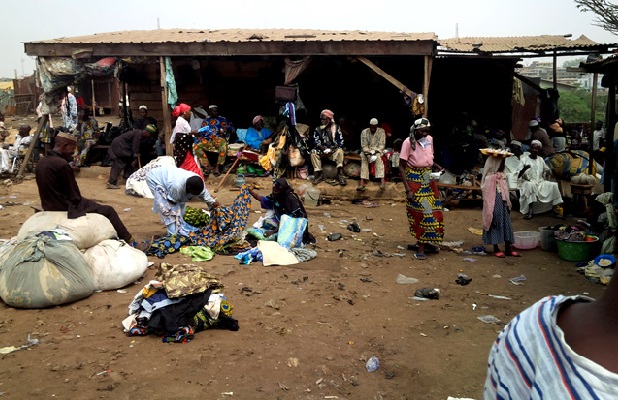
The second group, from the right, under the middle pavilion sits the headsman in a white turban; he is blind and only speaks Hausa and a smattering of Yoruba. There are bundles of used clothes on the ground right in the middle of the pavilions. Big, green houseflies hover all over the pavilions in swarms, going into different flying formations as if they were a country’s fleet of combat planes on parade. It is about 12 o’clock in the afternoon and half-naked children run around the premises in a care-free manner.
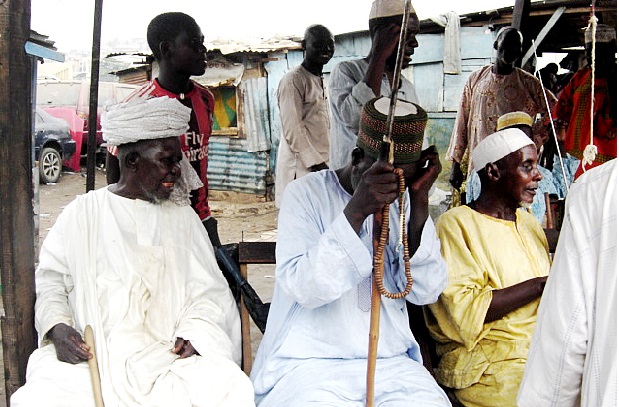
Though many of the people seated under the pavilions have one form of disability or the other, none of them seems to care about the situation. They are more focused on attracting the next cheerful giver, bringing their next bread for the day.
Advertisement
HEADQUARTERS
This is Sabo, headquarters of beggars in Ibadan, capital of Oyo state. A cursory look around the pavilions explains the presence of the not-so-pleasant odour that in turn fuels the aerodynamic calisthenics of the big green houseflies. There is a huge dumpsite behind the pavilions. To one side of the dumpsite are numerous shacks built with used iron roofing sheets. They serve as the home of some of the beggars, as well as their toilet and bathroom.
Sabo was not our destination when we set out to find out about the plights of destitute in Ibadan, but after talking to several people in Bodija, Beere, Agbowo, Ojoo, Dugbe, Mokola and many other parts of the city and they kept pointing us at Sabo as where they go at night, we decided to visit.
Advertisement
HOW DID THEY GET THERE?
Some of them were born and bred there. This was evidenced by the hordes of children following us around. They have not experienced any other life style apart from living as destitute. Many others became outcasts among their own because of congenital diseases that may have claimed a part of their body from birth. Amongst them are also Internally Displaced People (IDPs) who left their homes with nothing, suddenly becoming wretched overnight because of prevalent violence in their original localities. And there is also a group consisting of people who willingly come to do business in the southwest but unfortunately got stuck when stories that the west is an easy place to make money proved false. There are some who see street-begging as a business, deliberately dressing in rags and tattered clothes in order to curry favour from kindhearted Nigerians. There are also the senior citizens who can no longer fend for themselves, and so resort to begging as they are left without help.
Lastly, there is a rare group who are directed to beg on the street for ‘spiritual’ purpose. These ones do not live in the shelters and their prominent feature is baby-carrying, usually they are found with twins.
WHO ARE THE DESTITUTE?
An Oxford Poverty and Human Development Initiative (OPHI) publication describes “destitute” as the poorest of the people classified to be poor. Meanwhile, “poverty” itself was classified into “absolute” and “overall” after expert deliberations at the end of the 1995 Copenhagen World Summit on Social Development, where delegates from 117 countries adopted a declaration and programme of action including commitments to eradicate and reduce, respectively, the two categories of poverty.
Advertisement
According to the declaration, “absolute poverty” is a condition characterised by severe deprivation of basic human needs, including food, safe drinking water, sanitation facilities, health, shelter, education and information. It depends not only on income but also on access to services.
On the other hand, “overall poverty” was described as taking various forms, including lack of income and productive resources to ensure sustainable livelihoods; hunger and malnutrition; ill health; limited or lack of access to education and other basic services; increased morbidity and mortality from illness; homelessness and inadequate housing; unsafe environments and social discrimination and exclusion.
The declaration further holds that this type of poverty is characterised by lack of participation in decision-making and in civil, social and cultural life. It occurs in all countries: as mass poverty in many developing countries, pockets of poverty amid wealth in developed countries, loss of livelihoods as a result of economic recession, sudden poverty as a result of disaster or conflict, the poverty of low-wage workers, and the utter destitution of people who fall outside family support systems, social institutions and safety nets.
Another UN Statement, signed by the heads of all UN agencies in June 1998 says: “Fundamentally, poverty is a denial of choices and opportunities, a violation of human dignity. It means lack of basic capacity to participate effectively in society. It means not having enough to feed and clothe a family, not having a school or clinic to go to; not having the land on which to grow one’s food or a job to earn one’s living, not having access to credit. It means insecurity, powerlessness and exclusion of individuals, households and communities. It means susceptibility to violence, and it often implies living on marginal or fragile environments, without access to clean water or sanitation.”
Advertisement
Going by the international definitions, it may be difficult to classify all female beggars in Nigerian markets as destitute but they all have a story behind their plight.
Nana Ibrahim, for example, has spent 30 years of her life begging. She said she would gladly go back to Katsina, her state, if she gets enough money to start work as a commercial food seller, but for now, she is the leader of the women here. When anyone brings offerings, she is in charge of sharing it among the destitute community.
Advertisement
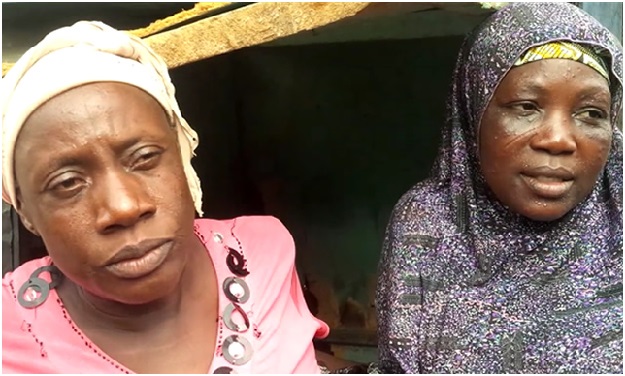
Her companion, another woman in her late 30s who would not give her name probably, knows no other form of livelihood apart from waiting for alms. She is the daughter of the beggars’ community leader in Sabo. She is without any visible physical disability but she lives and begs just like the others. She has two children; both of them are in private schools.
Maryam Saleh, on the other hand, says she is from Gusau in Zamfara state. She came to Ibadan to seek help for her swollen leg.
Advertisement
“I came into Ibadan about three months ago to seek treatment to my leg,” she says, pointing to her right leg that is obviously swollen.
Whatever was responsible for the swollen leg was not done with Maryam yet, but it has already finished her resources. Now she sleeps in a shop by the roadside every night at Bodija market, in Ibadan, and begs for a living because she no longer has money for the treatment, neither does she have money to return to Gusau.
Advertisement
Asked what help she needs, Maryam bursts into tears: “I want to go back home to Gusau. It is clear now that there is no cure anywhere for my sickness. If I get enough money, I will go back. It is better to die at home where my people will bury me properly than to die on the street.”
As the sun beats down on Maryam, she says she would have loved to seek shelter because she’s not feeling too well, but the only place she calls home would only be free for her to use from 8 pm, when the stall owner is done and gone home.
Maryam’s narration in Bodija, Ibadan, is similar to Aisha Abdlatifu’s in faraway Lafenwa, Abeokuta in Ogun state.
“I was of the opinion that the west is a paradise,” she stated. “People in our place used to talk about the west, especially Lagos, as if money could be picked from the floor. So I saved up small money to come down here. But business has not been moving. And when I exhausted all the money I brought from the north, I resorted to begging in order to save up and go back to my village.”
But two young girls, Aisha and Nehima, 12 and 14 years respectively, interviewed around that same location, said they liked begging on the street.
“Who would not like it?” they asked. “People are kind, they give you food, they give you money every day and you say we should not like it?”
It turns out that some of these destitute who induce pity and compassion actually do not see their condition as deserving pity. Quite a number of them see it as a business venture.
* To be continued
* Additional reporting by Ayodele Olofintuade
* This report was accomplished with the support of the Wole Soyinka Centre for Investigative Journalism (WSCIJ) and the Embassy of The Netherlands
1 comments
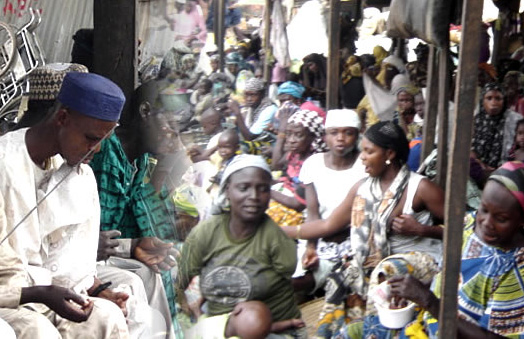
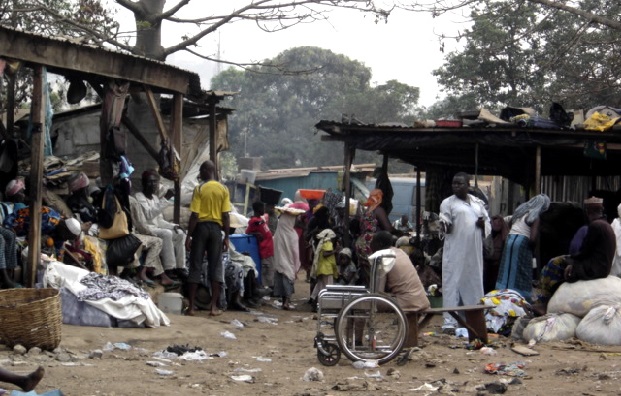
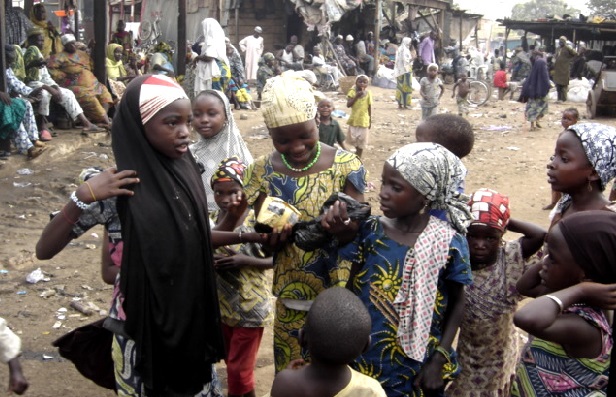
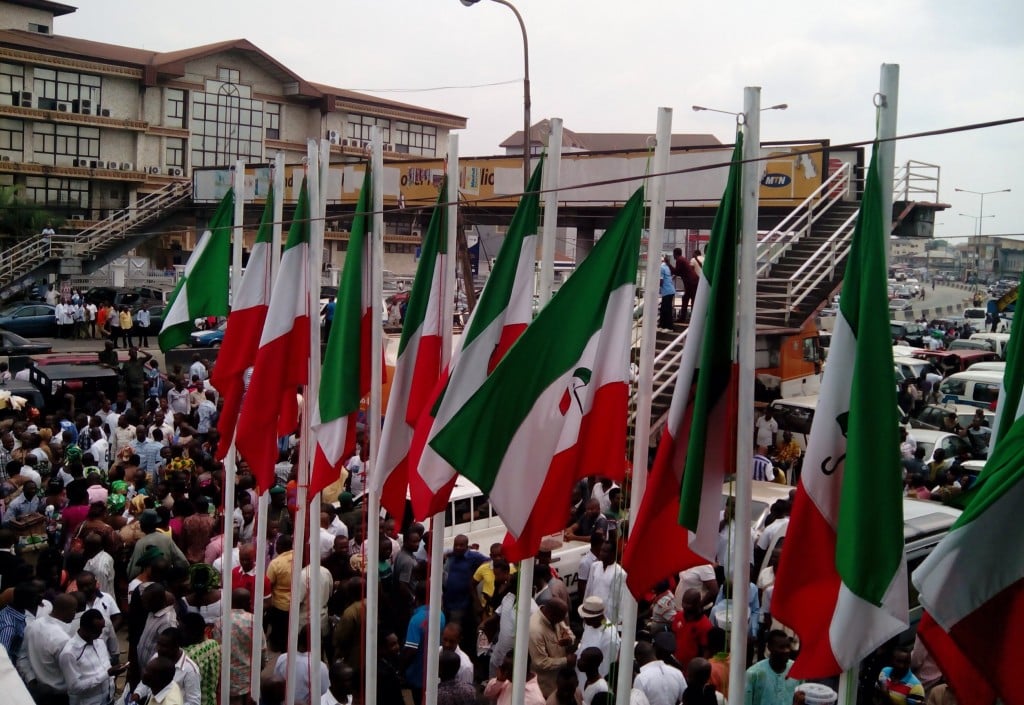

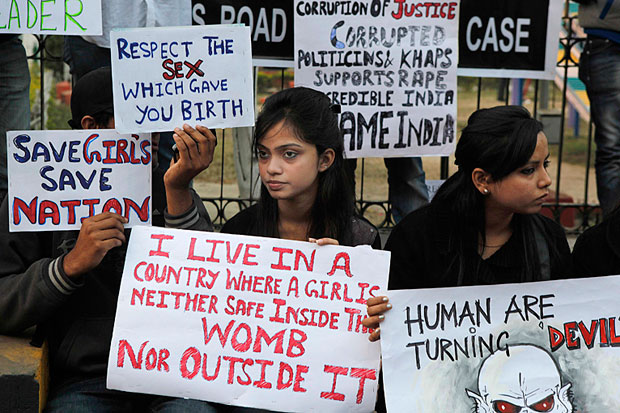

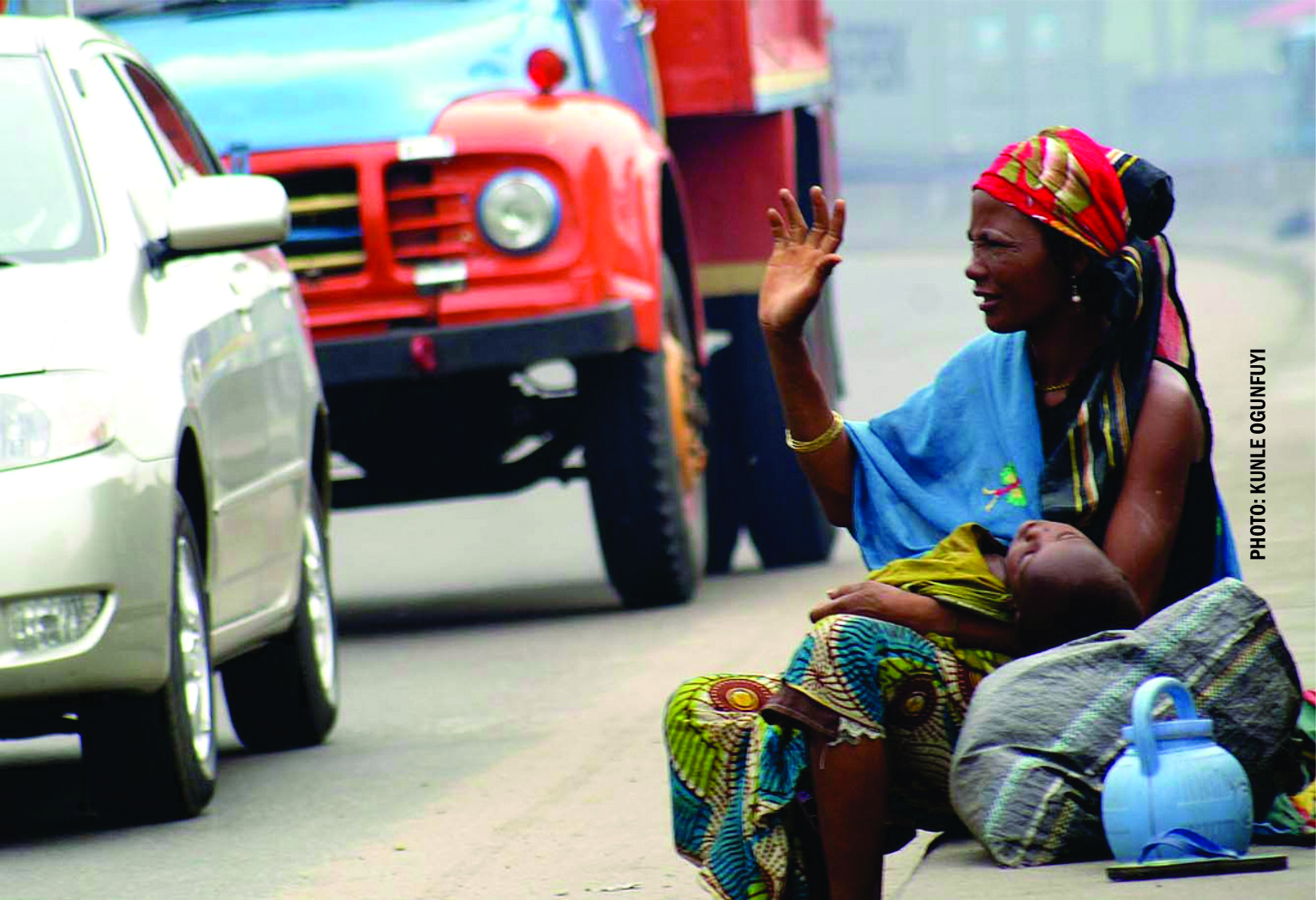

Excellent reporting A yodel Olofintuade.Please contact me for support and research. We can contact the UN for assistance and other organizations in USA and Europe.